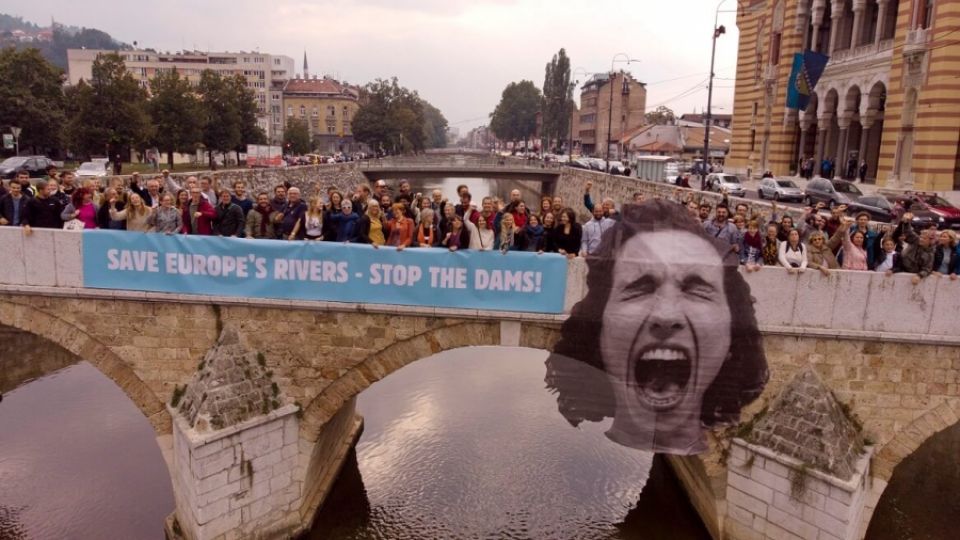Bosnia and Herzegovina hosted the first Europe-wide meeting for river protection. The meeting, “River Summit,” was designed to plan steps to stop the destruction of watercourses and return freedom to the rivers. Experts, locals, and non-governmental organizations, including Arnika, agreed on optimal future procedures. Their suggestions aim to help with the successful implementation of the EU Water Framework Directive by 2027.
Stop promoting hydropower projects and guarantee the rights of citizens for a healthy environment was what 250 attendees, from more than 30 countries, demand in declaration. The statement is addressed to the European Commission, the European Parliament, the Energy Community, the European Bank for Reconstruction and Development (EBRD), the European Investment Bank (EIB), and to all of the Heads of State in Europe.
According to Zuzana Vachůnová, the coordinator of the campaign Saving Balkan Rivers!, a strong European movement has started to develop. “Summit was attended by people from various fields – from activists and fishermen to journalists and academics. We can't just protect rivers, it's not enough. We need to actively help to return them to the original state as well. At the same time, we have to prioritize local communities as they are the first ones threatened by the construction of new hydropower projects,” said Arnika's expert as she summarized the ideas of international summit.
Arnika is working together with the Bosnian-Herzegovnian Centre for Environment (CZZS) on the protection of wild rivers for two years now. Thanks to the Transition Promotion Program of the Ministry of Foreign Affairs of the Czech Republic, the organizations strive to stop the massive construction of new dams. In Bosnia and Herzegovina alone, there are plans to construct at least three hundred dams currently which would cause countless issues and negative impacts on both the local communities and the environment.
"Hydropower is a destructive, outdated technology that, today, can be easily substituted with modern sources of renewable energy such as solar power," stated president of CZZS, Nataša Crnković when speaking to the RiverWatch.
Free-flowing rivers vanish
Almost two thirds of European rivers are in a bad ecological state. According to the European Environmental Bureau (EEB), European watercourses are degraded to a point where they can no longer sustain functioning ecosystems. In the EU only, 25,000 hydropower plants are registered according to the EEB. This figure does not include “small” hydropower plants. Therefore, it must be assumed that the actual figure is much larger.
Stream regulation brings about many irreversible problems. Apart from direct interventions to the environment, dams are a major source of greenhouse-gas emissions. Worldwide, between 500 and 750 million people suffer from direct or indirect impacts of dams.
Czech Republic is not one of the model states – construction of new hydropower projects is still under consideration. One major issue is the construction on the river Elbe which is supported by even the national government. However, the benefits of those weirs are highly questionable. Moreover, proposed construction areas are located in protoected natural areas. They are items of the interest of the network Natura 2000.
The next River Summit will be held in Portugal in 2020.
Translated by Iveta Palúchová







